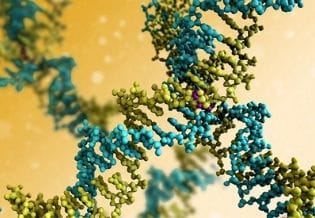Submit Manuscript
A clear submission pathway for proteomics and genomics research, with ManuscriptZone tracking and a simple submission option.
Submission Essentials
- Proteomics, genomics, and multi-omics focus
- Data transparency and reproducibility
- Single blind peer review
- DOI registration and open access
Journal at a Glance
ISSN: 2326-0793
DOI Prefix: 10.14302/issn.2326-0793
License: CC BY 4.0
Peer reviewed open access journal
Scope Alignment
Proteome profiling, genomic discovery, multi-omics integration, biomarker validation, computational proteomics, and translational molecular medicine. We emphasize reproducible pipelines and clinically meaningful evidence.
Publishing Model
Open access, single blind peer review, and rapid online publication after acceptance and production checks. Metadata validation and DOI registration are included.
Submission Overview
JPGR provides a structured submission process designed for proteomics and genomics research. Submissions are evaluated for scope fit, methodological rigor, and data transparency.
Complete submissions reduce delays and improve review efficiency. Review the scope and reporting requirements before submission.
Before You Submit
- Confirm scope fit for proteomics or genomics
- Prepare ethics approvals and consent statements
- Organize figures, tables, and supplementary files
- Include data availability statements and registry identifiers
- Review reporting standards for your study design
Manuscript Categories
- Original research articles
- Systematic reviews and meta analyses
- Method and technology reports
- Short communications and brief reports
- Translational studies with molecular outcomes
Manuscript Preparation
- Title page with author affiliations and corresponding author contact
- Structured abstract with objectives, methods, results, and conclusions
- Methods with detailed study design and analysis
- Results with clear tables, figures, and outcome reporting
- Discussion highlighting translational relevance and limitations
- Ethics approval, funding, and conflict of interest statements
Data and Code Sharing
Provide repository links for proteomics or sequencing data and include accession numbers in the manuscript. Share analytical code and workflows when feasible to support reproducibility.
If code cannot be shared, describe the pipeline and software versions in detail.
- Include data availability statements
- Report quality control and normalization steps
- Document software versions and parameters
- Describe validation cohorts or datasets
Reporting Standards
- CONSORT for randomized trials
- STROBE for observational studies
- PRISMA for systematic reviews
- CARE for case reports
Submission Options
Submit via ManuscriptZone for full tracking and editorial coordination. A quick submission option is available through the Simple Manuscript Submission Form for initial details.
- ManuscriptZone: https://oap.manuscriptzone.net
- Simple Manuscript Submission Form: https://openaccesspub.org/manuscript-submission-form
Peer Review Process
JPGR uses single blind peer review. Reviewers evaluate scientific rigor, data quality, and translational relevance. Editors provide consolidated decision letters with clear guidance.
Initial decisions are typically issued within 2 to 4 weeks, depending on reviewer availability.
| Stage | Typical Timing | Focus |
|---|---|---|
| Initial Screening | 1-2 weeks | Scope fit and compliance checks |
| Peer Review | 3-6 weeks | Methods, data quality, and impact |
| Revision | 2-4 weeks | Author responses and improvements |
| Production | 2-3 weeks | Copyediting, proofs, DOI registration |
After Acceptance
Accepted manuscripts move to production for copyediting, proof review, and DOI registration. Articles are published under CC BY 4.0 to support open access reuse with attribution.
Authors should review proofs promptly to confirm accuracy of figures, tables, and metadata.
Submission Checklist
- Scope alignment confirmed
- Ethics approvals and consent documented
- Data availability statement included
- Figures and tables labeled and cited
- Cover letter prepared with scope fit summary
Author Support
The editorial office can provide guidance on scope, formatting, and submission steps. For questions about submission options, contact [email protected].
JPGR Commitment
JPGR is committed to rigorous, transparent publishing in proteomics and genomics. We emphasize reproducible methods, complete data statements, and ethical compliance across all article types.
The editorial office supports authors, editors, and reviewers with clear guidance and responsive communication. For questions about scope or workflow, contact [email protected].
We encourage continuous improvement in reporting practices and share updates that help the community maintain high standards in molecular publishing.


